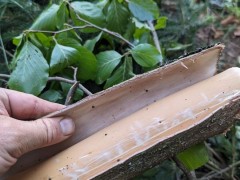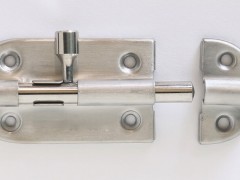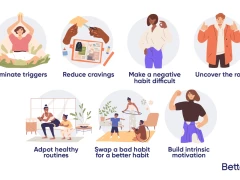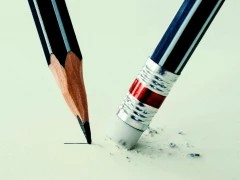bark [bɑːk] v. 狗叫
press [pres] v. 按,压
【派】pressure 压力
【扩】push 按,压
【搭】press down 逼迫
* * *
A: Can you tell me how to use this machine?
B: Yes, put the coin into the machine, then press the button.
A:你能告诉我怎么用这个机器吗?
B:可以,把硬币投进去,然后按键
* * *
paw [pɔː] n. 脚爪
latch [lætʃ] n. 门闩
expert [ˈekspəːt] n. 专家
【扩】specialist 专家
* * *
A: He is an expert in this field.
B: Maybe he can direct me.
A:他是这一领域的专家。
B:也许他能指导我。
* * *
develop [diˈveləp] v. 养成
habit [ˈhæbit] n. 习惯
【派】habitually 习惯性地
【扩】custom 习惯
【搭】get sb. into the habit of
使某人养成某习惯
* * *
A: You have to make an investigation about consumer's habit to purchase.
B: I did it, and here is the result.
A:你应该做一个有关消费者购买习惯的调查。
B:我做了,这是调查结果。
* * *
remove [riˈmuːv] v. 拆掉,取下
【派】removed 离开的
【扩】unhang 取下悬挂物
【搭】remove...from 移除
* * *
A: Can you remove the fence for me?
B: Sure, but we should get some tools first.
A:你能帮我拆除这篱笆吗?
B:可以,但是我们得先拿一些工具来。
verb [vi. 不及物动词]大声嚷,吼叫;(狗)吠,叫;擦破(胫部的)皮;剥去(树,木头的)皮 - Don't let the dogs bark.
noun [抽象名词]狗叫声,吠声;吼叫声;树皮;小帆船,三桅帆船 - The Doberman let out a string of roaring barks.
- The dog is barking.
sb. is barking. 某人在咆哮
noun [专属名词]新闻工作者,新闻界(the press);报刊(the press);(报刊、广播、电视的)新闻报道;新闻评论,新闻评价;印刷机;出版社,印刷厂;印刷;按,压,熨;压平器,压榨机,熨烫机;拥挤的人群(或大批事物);(分层)大壁橱,衣柜,书柜;(篮球)紧逼;(举重)推举;<史>(尤指海军的)强行征兵 - Inevitably, the press exaggerated the story.
verb [vt. 及物动词]压,挤,推,贴;按,揿(按钮或开关);将…塞进,把…按入;困扰,严重影响;挤着走;催促,敦促,逼迫;竭力推行,竭力主张;压平,熨平;压榨,榨汁,榨油;把…压成形,压制(尤指留声机唱片);使紧贴,紧抱;(深情地)紧握(某人的手或臂);坚持前进;坚持;(敌人,对手)进逼,进攻;(高尔夫)(为求距离而冒不准确风险的)过猛击球 - If you press a button or switch, you push it with your finger in order to make a machine or device work.
① vt.&vi. 按,挤,压
- She pressed my hand warmly. 她热情地握我的手。
- Can you press that button for me please?
② vt. 挤取,榨取(……的汁)
- This is the time of the year when they press their grapes.
- If you prefer juice, you can press some oranges.
③ vt. 催促,敦促,竭力劝说
- My parents pressed me to enter for the competition.
- I don’t like to be pressed. 我不喜欢被人催促。
pressure n. 压, 压力, 电压, 压迫, 强制, 紧迫
- Ian is a member of the press.
- The press is/are waiting to see the president. 记者们在等着见总统。
noun [专属名词](动物的)爪子;<非正式>(人的)手 - The dog had hurt its paw.
verb [vt. 及物动词]用爪子抓(或挠);摸弄,猥亵地动手动脚;胡乱地翻找;(用手指)触碰 - Madigan's horse pawed the ground.
cat's paw 被利用的人(由寓言而来)
I don't want to be a cat's paw 我才不想被人利用
noun [具体名词]门闩,窗闩;<英>碰锁,碰簧锁;(电子)门闩线路,锁存器 - She listened for his key in the latch.
verb [vt. 及物动词]闩上(门),用弹簧锁锁住(门等);(电子)(装置)状态恒定;占有,抓住 - He lifted the latch and opened the door.
noun [抽象名词]专家,能手,权威 - He considers himself an expert.
adjective [原级]专业的,熟练的 - The Japanese are expert at lowering manufacturing costs.
verb [vi. 不及物动词]当专家 - We'll need an expert opinion.
expert at/in sth. 在某一方面是专家
- She's expert at making cheap but stylish clothes. 她擅长做便宜但雅致的服装。
- She is a real expert at house decorations. 她是一个真正的家装能手。
- They are all expert in this field. 他们都是这个领域的行家。
- Each member of the group is an acknowledged expert in some area. 这一组的每一个成员都是某一个领域内的专家。
expert at/in doing sth.
- He was expert at/in opening the door
- He's an expert at getting his own way. 他在如何达到自己的目的方面很在行。
- He was expert in making money. 他是电子应用专家。
verb [vt. 及物动词](使)成长,发育,发展;逐渐形成,逐渐养成;开发,研制;出现,产生;修建,开发土地;提高,加强;患病;阐释,展开;冲洗,使底片显影;(修改旋律、和声或节奏以)展开(音乐主题);(棋)出子 - If you say that a country develops, you mean that it changes from being a poor agricultural country to being a rich industrial country.
| develop | vt. &vi. 发展,扩展 |
|
|---|---|---|
| vt. &vi.(逐渐)显现出,产生,获得,养成 |
|
developing skills 发展技能
- fluency in English 流利英语 (fluency n.流利, 流畅, 雄辩)
- developing country 发展中国家 (V-ing 强调正在 boiling water 滚开水)
- developed country 发达国家 (V-ed 强调已经 boiled water 开水)
noun [抽象名词]习惯;(吸毒、喝酒、抽烟的)瘾;道袍,道服;<古>体质,体型 - He has an endearing habit of licking his lips when he's nervous.
verb [vt. 及物动词]<古>给…穿衣 - They also have the irritating habit of interrupting.
Exercise Walking, running, swimming, yoga, weightlifting, and sports. Exercising is one of the most beneficial habits you can commit to. Some of the benefits are:
- Better sleep
- Weight management
- Increase in energy
- Reduce stress
- Improved heart health
- Improved brain health
Reading Reading daily builds up your knowledge, transforming your mind. Benefits of consistent reading are:
- Improve vocabulary
- Learn new skills
- Improve current skills
- Expand overall knowledge
- Improve storytelling skills
Writing Writing daily is a great way to improve one of the most essential skills we all need to develop. Writing is necessary for:
- Communication
- Business
- Marketing
- Persuasion
- Expanding thoughts and ideas
- Documenting events and experiences
Plan your day(s) Planning out your day is an effective way to follow through on all the important tasks that need to get done. You’re able to accomplish more and manage your time better when all your tasks are placed within an organized timeframe. You can plan out our days by:
- Making a to do list
- Creating a schedule
- Prioritizing task from least to most important
- Setting a clear structure
- Setting realistic deadlines
- Leaving room for unexpected events
Waking up early “Early bird gets the worm”, they don’t say that for nothing. For those with a competitive spirit, waking up early gives you a head start and extra hours to add more activities to your day. Waking up early also gives you more time to accomplish the tasks that you need to complete for the day.
Art/creativity We all have that creative talent that is waiting to be brought out. Making this a habit can be a very satisfying experience and for some it can become a career. There are many ways you can express yourself and be creative. Some of the ways are through: Dancing, sports, painting, writing, cooking, coding/web design, communication, and movies.
Gratitude Being grateful on a daily basis greatly improves your overall outlook and emotional state. You begin to see things in a better light; seeing the positives in negative experiences and not taking anything for granted. Emotionally, you feel lighter and less frustrated with your daily struggles and challenges.
Meditation A great way to relax and let go is by meditating. With at least 15-25 minutes of daily meditation you will gain many benefits. Some of the benefits are:
- Increased awareness
- Increased focus and memory
- Increased intuition
- Greater emotional regulation
- Higher stress tolerance
verb [vt. 及物动词]移开,拿开;除去,废除;把…免职,开除;脱下,摘下;<史,南非> 依法迫迁;远离;不同于,迥异于;<旧> 搬家 - Scuff marks from shoes are difficult to remove.
noun [抽象名词]<正式> 距离,间距;<史>(一些英国学校中的)年级 - The logical treatment is to remove this blockage.







